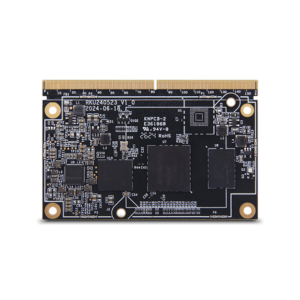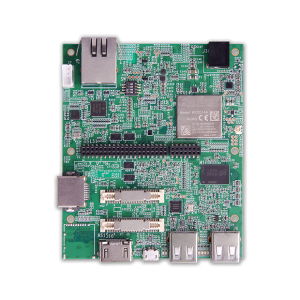Accelerating Product Development with Versatile Computer-on-Modules
Accelerating Product Development with Versatile Computer-on-Modules
Blog Article
In the present fast-paced technical landscape, businesses and developers are significantly embracing modular answers to meet the ever-growing demands of high-performance applications. One solution getting traction is the use of computer on module. These compact, self-contained methods are packed with all the current crucial components of a pc, like the processor, memory, storage, and connectivity interfaces, all integrated into a single unit. In this information, we investigate why Computer-on-Modules are being a go-to selection for scalable, high-performance programs across numerous industries.

1. Compact Style and Integration
One of the major benefits of COMs is their lightweight form factor. These adventures are created to integrate all critical aspects of a computer, reducing the necessity for numerous discrete parts and rendering it simpler to create lightweight, space-efficient systems. That integration permits designers to construct effective alternatives without sacrificing the overall measurement of the finish item, which is specially useful in industries such as for instance stuck systems, IoT products, and industrial automation.
2. Scalability for Varied Programs
Scalability is a crucial component for modern purposes, especially in areas like telecommunications, automotive, and side computing. With Computer-on-Modules, organizations can very quickly degree up or down with respect to the specific efficiency and reference requirements of the projects. As an example, a business building an advantage research alternative can start with a module that meets basic wants and then update to better modules whilst the workload or running demands grow. This versatility enables companies to future-proof their investments and align electronics with changing performance demands.
3. High-Performance Processing
Several high-performance programs require a powerful computational backbone to take care of challenging projects such as for instance real-time information handling, video analytics, or machine learning. COMs are usually developed with powerful processors, high-speed interfaces, and ample storage, creating them capable of offering the large throughput and low-latency performance required for these applications. Moreover, their power to support the most recent processor architectures assures that programs may remain at the front of efficiency benchmarks.
4. Price Effectiveness and Time Savings
Another substantial advantage of applying Computer-on-Modules is charge efficiency. Because the segments come pre-integrated with essential parts, developers save yourself both time and assets that will usually be allocated to planning, testing, and building specific components. This can cause reduced development rounds and a faster time-to-market for products and services, that is critical in competitive industries. Moreover, because the hardware parts are standardized, the chance of incompatibility is decreased, leading to better growth operations and lower engineering costs.
5. Variable Customization
While COMs give you a large degree of integration, they are also created for flexibility. Many COMs come with different choices for I/O interfaces, storage options, and energy administration answers, allowing developers to tailor the element to the specific wants of the application. That versatility is very important in industries where modification is essential, such as medical devices, robotics, and automotive applications.

Realization
In summary, Computer-on-Modules present numerous benefits for businesses and designers seeking to produce scalable, high-performance solutions. Their lightweight style, scalability, effective processing capabilities, cost-efficiency, and customization options make them an ideal selection for a wide selection of applications. As industries continue steadily to evolve and demand stronger, variable options, COMs will certainly enjoy a pivotal position in shaping the future of technology. Report this page